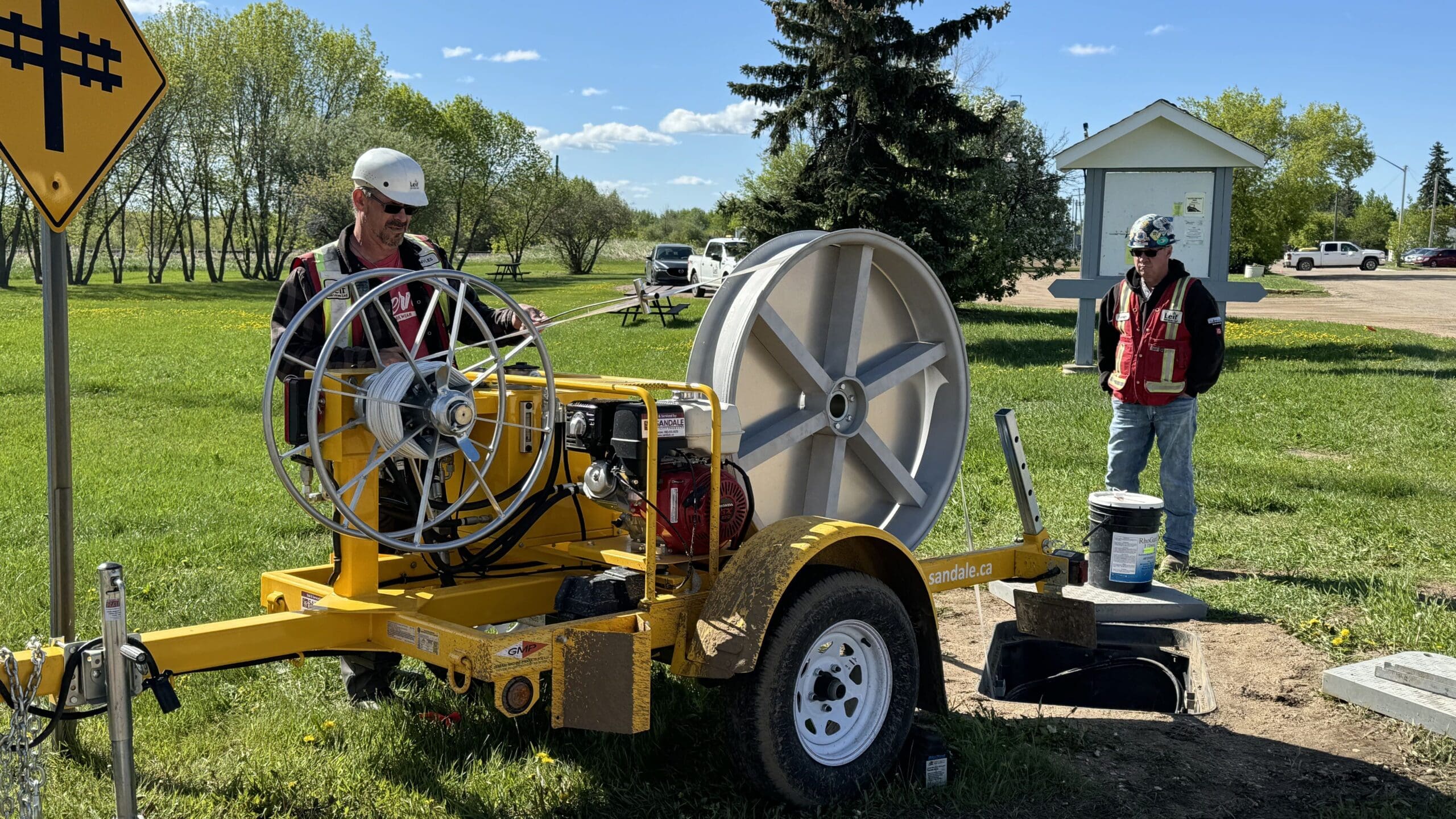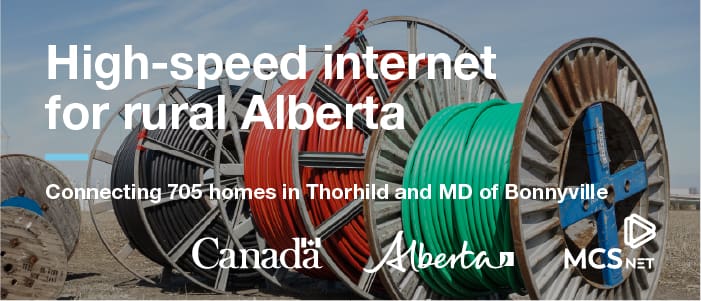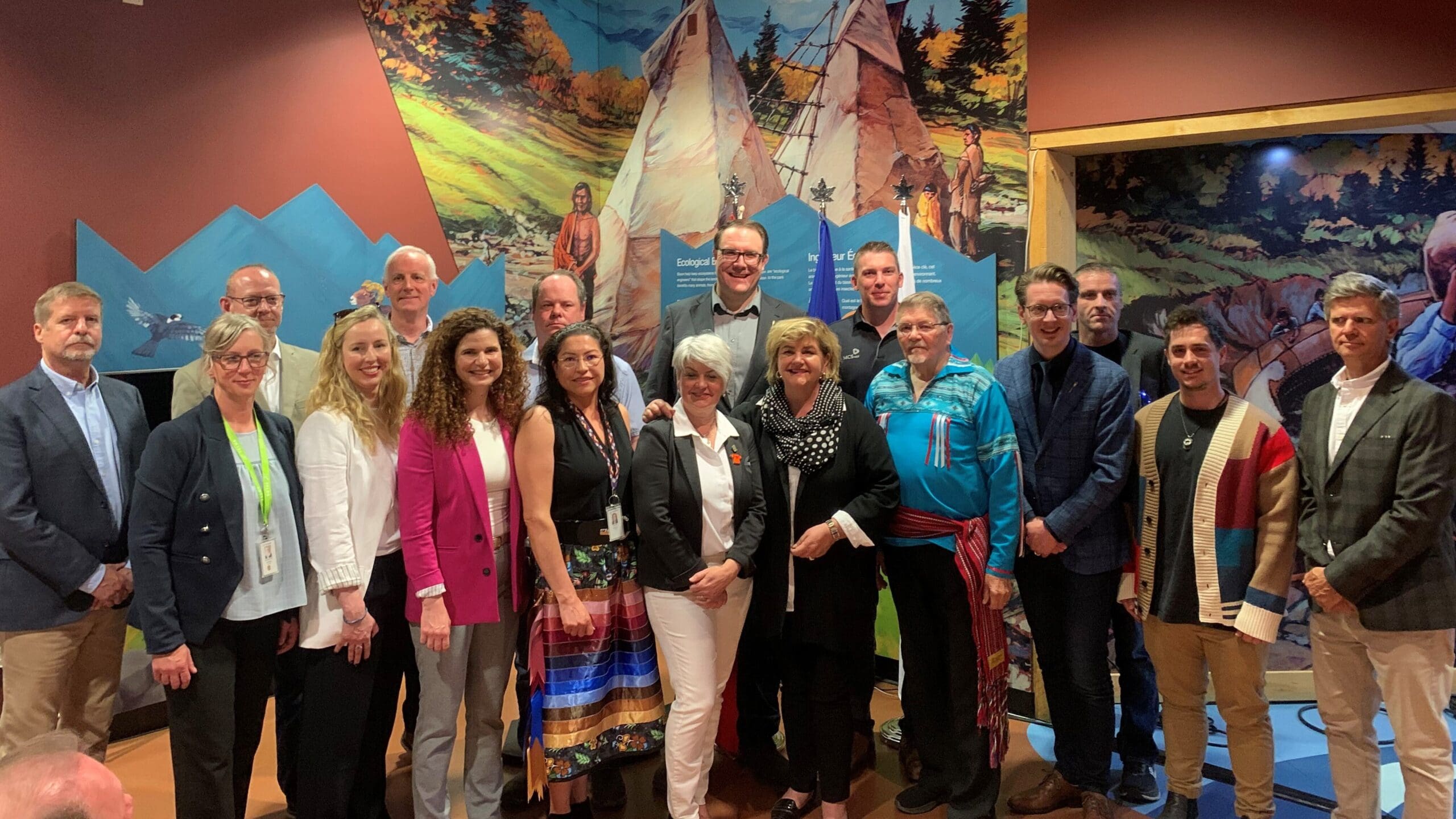Homes to Be Connected to Fiber in Thorhild and MD of Bonnyville

MCSnet is pleased to receive further broaband grant funding through another successful application to the Universal Broadband Fund (UBF).
“Building Fiber to the Home in these communities will make them scalable for future internet technologies and add another layer of internet reliability ,” says Jerico VanBrabant, CEO of MCSnet. “Combined with new wireless technologies, such as GigAir, we are able to reach more customers with gigabit speeds throughout our service area.”
Communities receiving fiber to each home include the Hamlet of Thorhild, Crane Lake, Aspen Grove Subdivision, Riverbend Subdivision, Whitetail Ridge Estates, and other rural properties east of Cold Lake. The Hamlet of Thorhild build is currently under construction and the MD of Bonnyville projects will take place in 2025.

Overview of MCSnet Broadband Grant Projects
- 705 homes to be connected to fiber
- $8,949,600 total project costs
- $3,356,100 Federal funding
- $3,356,100 Provincial funding
- $2,237,400 MCSnet funding
MCSnet applied to the UBF in 2021 with the goal of improving speeds to its customers in Northeastern Alberta.The UBF provides funding to improve internet speeds for rural and remote communities to meet minimum internet speeds of 50/10 Mbps.
Since the majority of MCSnet’s customers are in rural and remote communities, the local, St. Paul-based company was successful in receiving this grant, announced on June 14, 2024. Both the federal and provincial governments matched funding towards these projects as part of their broadband strategies.

This is the fifth successful grant application that MCSnet has received to improve broadband. To date, MCSnet has received over $28 M in grant funding and has invested $24 M of its own funds as part of these grant programs to improve internet speeds for over 35,000 homes and businesses in Northeastern Alberta.
In 2019, MCSnet built Fiber to the Home projects in Mallaig, Fort Kent, and Cherry Grove without any grant funding. This fiber project experience, combined with advancement in high-speed wireless technologies, makes MCSnet highly competitive with other larger internet companies in the area.
Why Were These Communities Selected?
The Universal Broadband Fund (UBF) uses data collected from Internet Service Providers and other entities, such as the Canadian Internet Registration Authority (CIRA), to obtain internet speeds across Canada. The ability to achieve the minimum standard of 50 Mbps download and 10 Mbps upload speeds is recorded on the National Broadband Internet Service Availability Map.
Back when MCSnet first applied to the UBF in 2021, it selected a number of communities to receive Fiber to the Home services. However, many of the communities were descoped because another provider in the area reported that their clients were receiving the 50/10 minmum standard. As a result, MCSnet used its transit fiber to the tower to launch GigAir in over 70 communties to date to provide fiber-like speeds to its customers.
So, What is Fiber Optic Internet?
Unlike traditional cable internet, which uses copper wires to transmit data, fiber optic internet uses thin strands of glass or plastic. These strands, about as thick as a human hair, carry data as pulses of light, allowing for incredibly fast speeds and massive bandwidth.
Think of it like this: if copper wires were a two-lane country road, fiber optic cables would be a multi-lane superhighway. This means more data can travel at much higher speeds, which is perfect for:
- Streaming: Say goodbye to buffering. Fiber optic internet lets you stream high-definition videos, movies, and music seamlessly.
- Gaming: Get the edge in online games with low latency (delay) and minimal lag.
- Working from home: Video conferences, large file transfers, and cloud-based applications become a breeze.
- Smart homes: Connect all your smart devices without worrying about slowing down your network.
To learn more about how Fiber to the Home stacks up against some satellite internet provides, read this blog.
